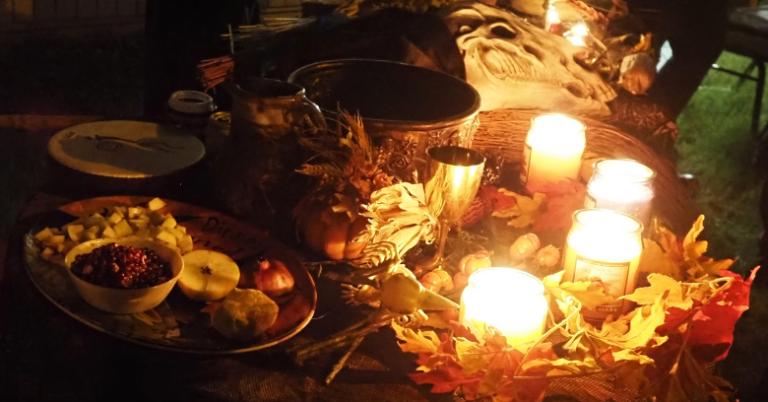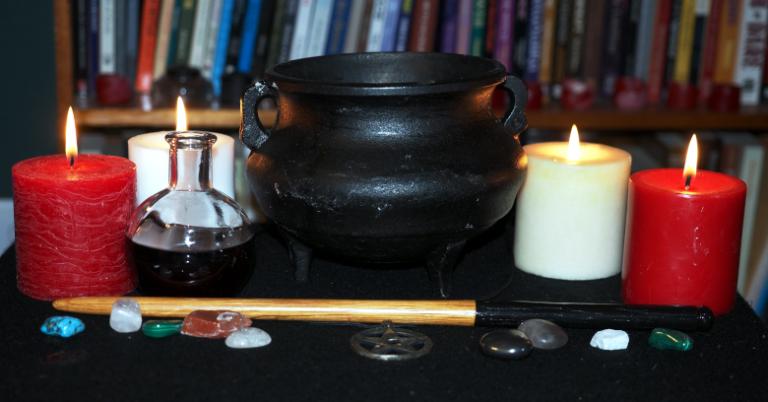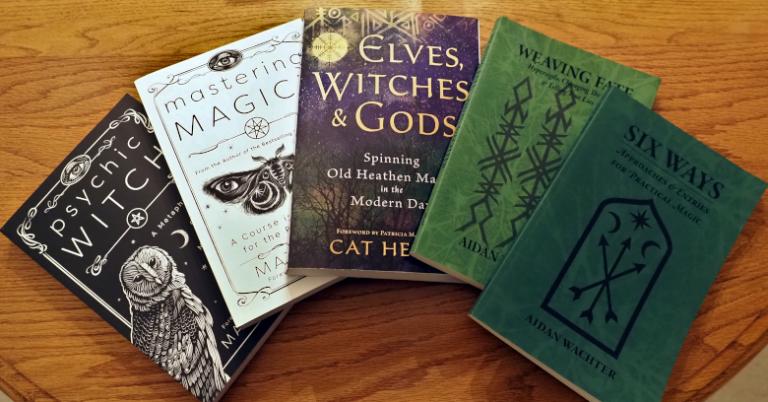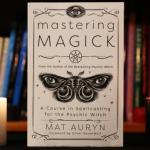If you’ve ever tried to get an answer from Google that requires more than about three words, you understand the importance of asking the right question in the right way.
I’m teaching a course on Tarot, and in the class I make the point that one of the keys to getting a good answer through divination is asking the right question.
With those two points in mind, earlier this week I came across someone who asked a question of a fairly well-known witchcraft teacher on social media. The questioner asked the teacher “when did you know you were a witch?”
I’m not going to link to the post. The question was genuine (there are no bad questions, except those asked in bad faith) and the answer was both honest and kind. I don’t want to appear to call out either – there’s nothing to call out.
But I can’t help thinking that when the teacher realized they were a witch isn’t what the questioner was really interested in learning. I think there may be some questions behind that question that would do a better job of getting the information the person really wanted.
As always when I write about witchcraft, I need to point out that I do not call myself a witch. I meet my own definition of a witch, but “Druid” is my primary magical/religious identity and it’s big enough to encompass my magical practice. Plus I don’t really need another hat to wear… even though witches’ hats are pretty cool. In any case, judge what I have to say about witchcraft by the accuracy and helpfulness of what I write and not by any credentials I do or don’t have.
Because whether you’re talking about witchcraft or Druidry or sorcery or generic magic, I think there are some better questions that might lead to more helpful answers.
Who can practice magic?
Anybody.
In his excellent book Psychic Witch, Mat Auryn says “psychic and magickal power is our birthright.” He’s right. Everyone has the right and the ability to work magic.
Fiction and popular culture often promote the idea that witches are born, not made. Some go so far as to say that witches aren’t entirely human. This makes for interesting storytelling, but it’s fiction. Anyone can practice magic. Anyone can become a witch.
Now, like all natural abilities, the aptitude for magic and witchcraft varies across the population. It comes easier for some people and harder for others. But for almost all of us, what you’re born with matters much less than what you do with it.
I have some natural talent for writing – it’s always come easy for me. But what you see on this blog and in my books is the product of a lifetime of writing practice.
I have very little talent for public speaking, and like most people, I have more than a little fear of it. But my desire to lead public ritual was greater than my fear of public speaking, and so I started doing it. What you seen in my presentations and videos is the result of a lot of intentional practice.
Best I can tell, my natural ability for magic is about average – somewhere near the 50th percentile. But I’ve worked on it a lot over the past 30 years or so, and I’m still working on it. And so I’m to the point where I can usually get good results.
So can you.
How can I become a witch?
Some people simply want the identity of the witch. It’s a powerful identity, and if embracing it helps you make your way through a hostile world, I’m not going to tell you you’re wrong. My interest is with those who want to do magic – who want to practice witchcraft.
If you want to become a witch, start practicing witchcraft.
That’s it.
You need no invitation or calling. You need no one’s permission. Doing what you want without worrying about permission from some authority is one of the markers of witchcraft. That’s why patriarchal men often accuse women who have minds of their own of “witchcraft.”
Some magical and witchcraft traditions have specific requirements and/or initiations. If you want to be a Gardnerian Wiccan you need to find a Gardnerian coven and train with them. There are many groups that operate under the banner of “Traditional Witchcraft” – each has their own requirements for membership.
There is value in crossing a line. There is value in initiation ceremonies, whether solitary or in a group. These can elaborate rituals, or they can be as simple as standing under the full moon and saying “I am a witch” and then doing some simple act of magic.
Because when you cast your first spell – by whatever means you choose – you cross a line. Maybe you can go back if you have second thoughts and maybe you can’t. But you’ll always have first-hand knowledge of what’s possible, and that changes you forever.
How can I get better at magic and witchcraft?
Perhaps the person who asked the original question wanted to be a witch but was uncertain if they could. But maybe they had been trying and weren’t getting the results they expected. Maybe they were thinking this path isn’t for them.
It’s necessary to set reasonable expectations. Never expect to see the kind of results we see in fiction – magic doesn’t work that way. I’m convinced magic doesn’t make things happen – magic improves the odds that things will happen. And that makes it easy to overlook the magic and credit your success to something else.
But when you get result after result after result, it’s easier to accept that magic is real than to keep rationalizing it away. If you aren’t getting the results you want, keep practicing.
All practice isn’t equal. Some methods and techniques have been shown to be more helpful than others. We can learn from the experiences of those who’ve gone before us.
Traditionally, magic and witchcraft were taught teacher-to-student, one-on-one. That still happens occasionally, but in our time most people get their initial instruction from books.
For beginners, I recommend Mat Auryn’s Psychic Witch and Mastering Magick. Aidan Wachter’s Six Ways takes a rather different approach, but one I find particularly helpful. His second book Weaving Fate is at an intermediate level. It probably shouldn’t be the first book on magic you read, but it could be the second. Cat Heath’s Elves, Witches & Gods is a step beyond that, from a Heathen perspective.
My own books are more concerned with religious and spiritual practice than with magic, but my online course in Operative Magic is the most popular of all my classes. It’s on-demand – you can take it at any time.
If you want to get better at magic and witchcraft, learn from good teachers and keep practicing.
How can I recognize – and accept – a magical calling?
You don’t have to have a special calling to practice magic or to become a witch, a Druid, a Pagan, or anything else.
That doesn’t mean some people aren’t called to this path. Because they are.
For some, this isn’t a curiosity. It’s not a utilitarian interest. For some, it’s a deep yearning for magical knowledge. It’s not just a desire to commune with the spirits, it’s spirits who won’t leave you alone until you talk to them.
Heron Michelle talked about this in a 2018 post on her blog titled Witchery as an Orientation and Sacred Mission. She says:
While I tried to ignore my inner witching self, hide my interests and abilities, and AVOID my calling, I was miserable wreck. I was spiritually, intellectually, socially, and emotionally starving.
The challenge with a calling isn’t to recognize it.
It’s to accept it.
For most people this is a free choice: do you want to do this? If so, great – go for it. If not, that’s fine too. It’s not for everyone.
But a few have no real choice. They can ignore the desire but it never goes away. Rejecting the call brings only suffering. Magic is part of who and what they are. They may not have been born with any special abilities, but they were born with a deep need to explore and develop the abilities they have.
This calling places a claim on your time, your other interests, your activities. It’s not just a matter of saying “yes” to magic – it’s also saying “no” to all things you’ll have to give up to be able to learn and practice magic at this level. It’s hiding part of who you are from the mainstream society, or learning to put up with their rolled eyes – and sometimes, with their threats.
Are you willing to do this?
Do you have a choice?
This is an era of magic and witchcraft
Magic is part of our heritage – we’ve been practicing magic for at least as long as we’ve been human. Neither medieval witchfinders nor modern skeptics have been able to wipe it out. Witchcraft has never been easier to learn. Magical books have never been easier to find – and safer to own.
Unfortunately, the need for magic and witchcraft is getting stronger.
There are no bad questions when asked in good faith. If you’re genuinely wondering about someone else’s magical origin story, that’s fine. They may tell it, or not, as they see fit.
But I think in this case, and in many others, the real question is “can I do this?”
The answer is yes.




















